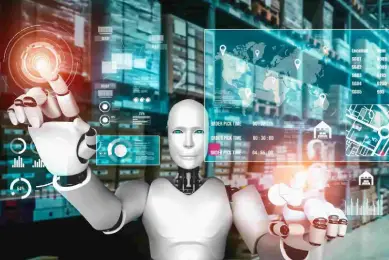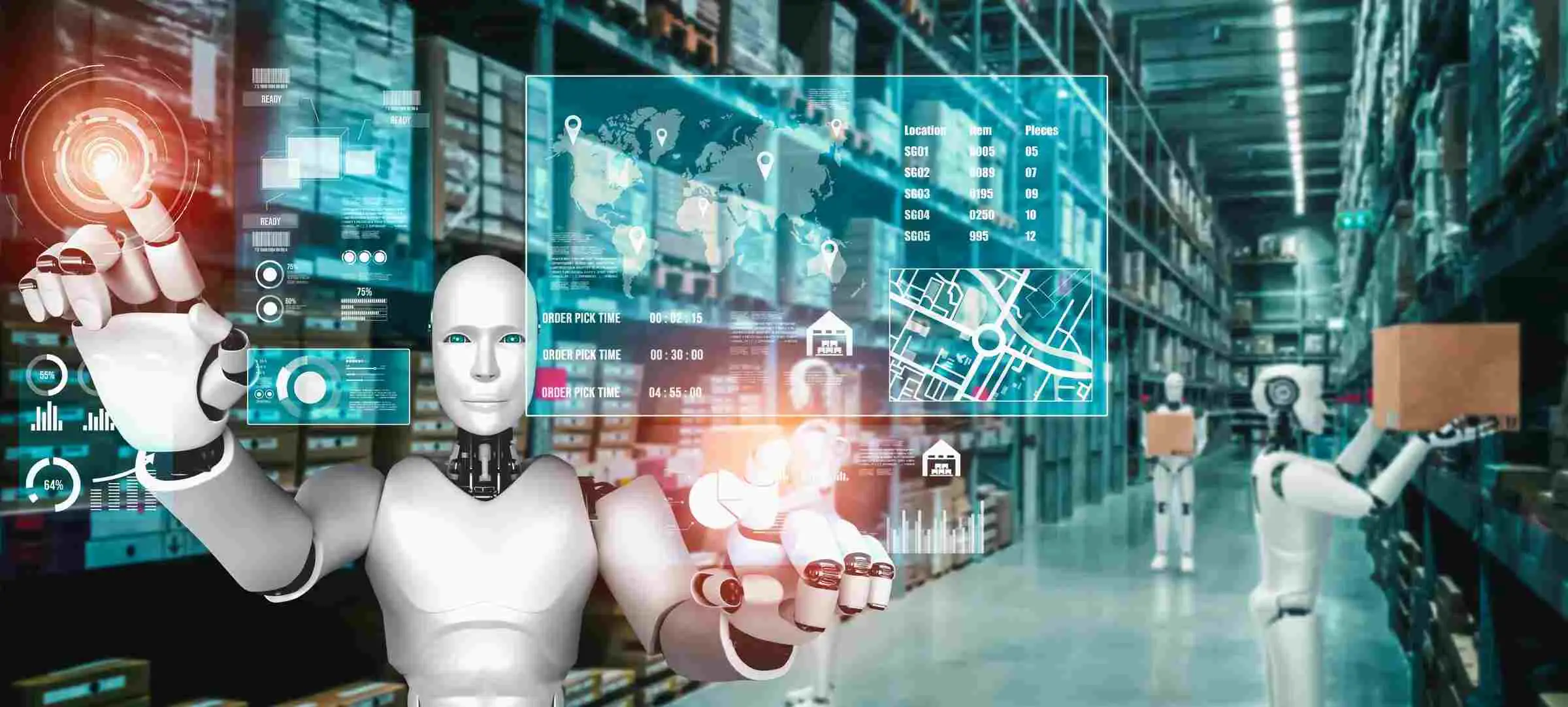Introduction
Artificial Intelligence (AI) has emerged as a transformative force, revolutionizing industries across the globe. With the ability to process vast amounts of data, recognize patterns, and make decisions, AI has become an indispensable tool in shaping the future of various sectors, from healthcare to finance, manufacturing to entertainment.
In this blog, we will explore the remarkable potential of AI and how it is reshaping industries, supported by relevant statistics and real-world examples.
1. Healthcare: Pioneering Precision Medicine
One of the most promising applications of AI is in healthcare. Integrating AI technologies, such as machine learning and natural language processing, has paved the way for precision medicine. By analyzing vast datasets of patient information, AI can identify individualized treatment plans, predict disease outbreaks, and even assist in drug discovery.
The global AI in healthcare market is projected to reach $19.25 billion by 2026, with a compound annual growth rate (CAGR) of 51.9%. IBM’s Watson for Oncology is a prime example, recommending treatment plans concordant with expert oncologists in 96% of breast cancer cases.
IBM’s Watson for Oncology is a prime example. It analyzes patient records and medical literature to provide personalized treatment recommendations. In a study in India, Watson for Oncology recommended treatment plans concordant with expert oncologists in 96% of breast cancer cases.
2. Finance: Enhancing Risk Management and Trading
In the financial sector, AI drives innovation in risk management, fraud detection, and trading strategies. Machine learning algorithms can analyze real-time market data, identify anomalies, and make split-second trading decisions.
A PwC report predicts that AI will contribute $15.7 trillion to the global economy by 2030, with financial services being one of the leading sectors to benefit.
Hedge funds like Renaissance Technologies have used AI for years to inform trading strategies. In 2020, the Medallion Fund, run by Renaissance, posted a staggering 76% annual return, showcasing the power of AI in finance.
3. Manufacturing: Optimizing Operations
AI-driven automation is transforming the manufacturing industry. Robots equipped with AI can perform complex tasks with precision, increasing efficiency and reducing production costs. Predictive maintenance powered by AI can also prevent costly breakdowns.
AI-driven automation is transforming manufacturing, with the global market for AI in manufacturing expected to reach $16.7 billion by 2026, boasting a CAGR of 57.2%.
Tesla’s Gigafactory’s are a testament to AI’s role in manufacturing. The company employs robots powered by AI for tasks such as welding and painting, allowing for faster and more accurate production of electric vehicles.
4. Education: Personalized Learning
AI is reshaping education by offering personalized learning experiences. AI can adapt curricula to individual student needs through data analysis, identify learning gaps, and recommend tailored resources.
The global AI in education market is predicted to grow at a CAGR of 40.1% from 2021 to 2028, as stated in a report by Grand View Research.
Duolingo, a language learning platform, uses AI to personalize lessons for each user. Its AI-driven approach has helped over 500 million users learn new languages effectively.
5. Entertainment: Content Creation and Recommendation
AI is also making waves in the entertainment industry. From generating music and art to recommending content, AI is revolutionizing how we consume and create entertainment.
The entertainment industry is also capitalizing on AI, with the global AI in the media and entertainment market estimated to reach $2.9 billion by 2026, exhibiting a CAGR of 25.3%.
Netflix utilizes AI algorithms to recommend personalized content to its subscribers. This AI-driven approach has contributed significantly to customer retention and engagement.
6. Agriculture: Precision Farming
In agriculture, AI-powered technologies are optimizing farming practices. Drones equipped with AI can monitor crops, identify pests and diseases, and even assist in crop harvesting, ultimately increasing yields and reducing environmental impact.
According to Research and Markets, the precision agriculture market is projected to reach $11.2 billion by 2025, with a CAGR of 13.3%.
John Deere’s See & Spray technology uses AI to apply herbicides precisely, reducing chemical usage by up to 90% and saving farmers costs while minimizing environmental impact.
7. Transportation: Autonomous Vehicles
The advent of self-driving cars and trucks is one of the most visible examples of AI’s impact on transportation. AI algorithms process data from sensors and cameras to navigate and make driving decisions.
According to a report by Mordor Intelligence, the global autonomous vehicle market is predicted to reach $556.67 billion by 2026, with a CAGR of 39.47%.
Tesla’s Autopilot system is a prime example of AI in autonomous driving. While still in development, it has demonstrated the potential for safer and more efficient transportation.
8. Retail: Personalized Shopping Experiences
AI is transforming the retail industry by providing personalized shopping experiences. Recommendation engines analyze customer preferences and shopping history to suggest products, increasing sales and customer satisfaction.
The AI in the retail market is expected to reach $23.6 billion by 2026, with a CAGR of 35.9%, according to a report by Markets and Markets.
Amazon’s recommendation engine is a pioneer. It is estimated that 35% of Amazon’s revenue comes from AI-driven recommendations.
Conclusion: The Ongoing AI Revolution
Artificial Intelligence is not merely a technological advancement; it’s a revolution reshaping industries. From healthcare and finance to manufacturing and entertainment, AI’s unprecedented potential is evident in the statistics and real-world examples provided. As AI continues to evolve and adapt, its influence on various sectors will only grow, driving innovation, efficiency, and economic growth.
Embracing and harnessing the power of AI is not just an option; it’s a necessity for businesses and industries looking to thrive in the future. The question now is not whether AI will revolutionize industries but how fast and to what extent it will do so.


